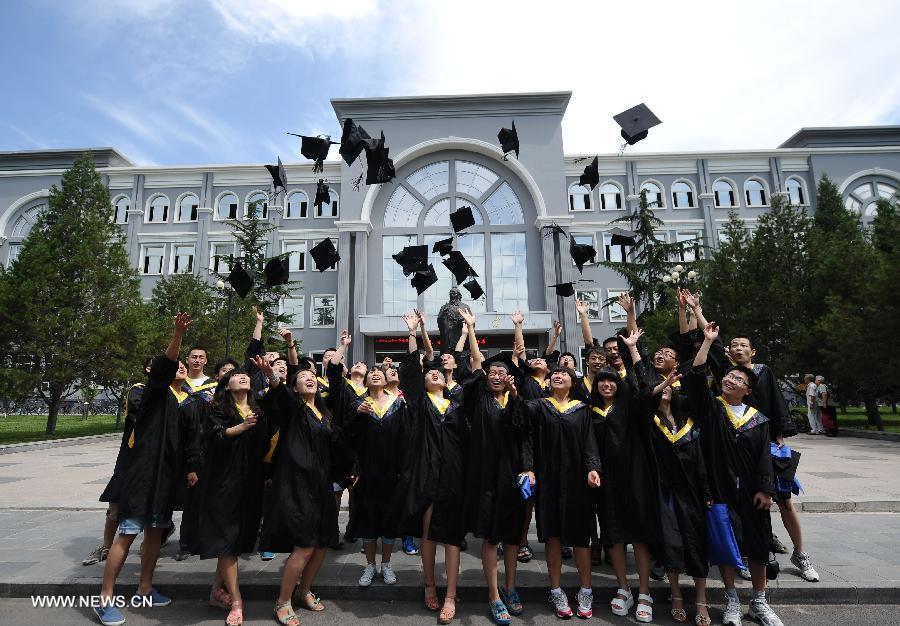


Should you, or should you not study abroad?
Look before you leap overseas!
Starting salaries of some overseas-returnees in China have reportedly fallen to as low as 40,000 yuan ($5,805) a year. Why? The expectations of those who study overseas vary. Many students going abroad for studies have dreams of working in a foreign country. After completing their studies, they plan to get a job in the country of their stay.
Only when they realize how difficult it is to land a job in that way do they return home.Since their original plan is to work overseas after graduation, they prepare themselves differently compared with the students in China. The wide gap between the demands of the domestic and overseas job markets shatters the dream of many returnees expecting to get cushy, well-paying jobs at home.
Students who study overseas for many years could lose track of the developments in China. They could also be found wanting in many areas as they cannot keep pace with their peers at home. Some students who return to China are less capable of dealing with different situations or lack comprehensive skills, and hence adapt to the changing environment more slowly than others.
To begin with, students, especially those who are part of international education exchange programs, should be well versed in globalization. Given the uncertainties of the global job market, they cannot focus on just one area.
They ought to master communication skills, be familiar with different subjects and be able to adapt to changes.
Secondly, whether or not a student should be sent overseas for studies should be decided by their aptitude, intellect and level of adaptability.
And thirdly, students going overseas for studies should know that on returning to China employers are more likely to treat them the same as local graduates, because they no longer have the advantages they once enjoyed.
Opinion of Chu Zhaohui, senior researcher at National Institute of Education Sciences

Don't miss the overseas experience
Recognizing the importance and contribution of Chinese students to the academic disciplines they study, and to enriching the student community in their universities, we value their contribution to widening the global perspective of all students.
Our research shows employers look for a number of core global employability skills, including the technical skills gained through studying a rigorous degree program in the United Kingdom, in recruits. They also want recruits to be work-ready. This work-readiness includes team-working, problem-solving, a global mindset, excellent communication skills, thinking beyond the obvious, and not being afraid to challenge established ways of doing things.
The UK offers Chinese students a rich cultural experience in both heritage and history. UK universities offer a unique experience in terms of encouraging independent learning, innovative and creative thinking, and English language skills.
But our research has found Chinese students often fail to move beyond Chinese groups within their university and so miss out on making the most of their time in the UK. Apart from other problems, staying within the Chinese community also prevents many of these students from becoming really proficient in English writing, reading and speaking.
Employers want cultural diversity in their global workforce because there is organizational resilience and competitive advantage in having Chinese graduates who are work-ready and have a global mindset. Chinese students must get work experience, either paid or by volunteering, so they can demonstrate to potential employers that they know how the world of work works.
If Chinese students plan to return to China, they need to understand the labor market, its complexity and rapid speed of change, as well as develop and maintain their networks. They would benefit from having "taster" work experience when they return home for vacations.
Students can help themselves by understanding their values and their career motivations. They can use this understanding to think about what career would suit these values and motivations, and then gain the necessarywork experience and extra-curricular experiences that will enable them to see whether these ideas are valid or not, and also to network with prospective employers.
And finally, they can draw this knowledge and experience together to show and tell employers why they are a good fit for the organization, and gain a career of their choice。
Story by the research team of Enhancing the Employability, Enterprise and Entrepreneurship Skills of UK-educated Chinese Students and Graduates led by the University of Warwick and funded by the British Council.
Source China Daily newspaper:
http://www.chinadaily.com.cn/opinion/2016-12/05/content_27566146.htm